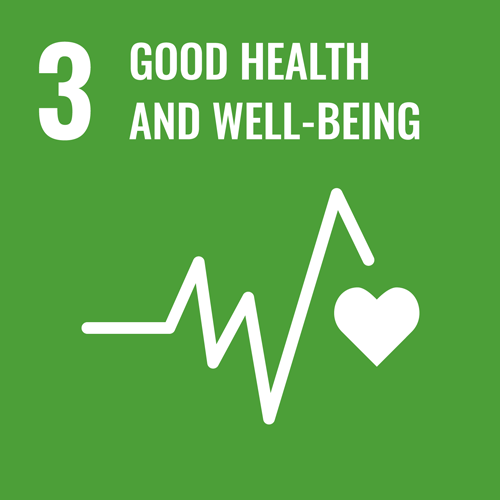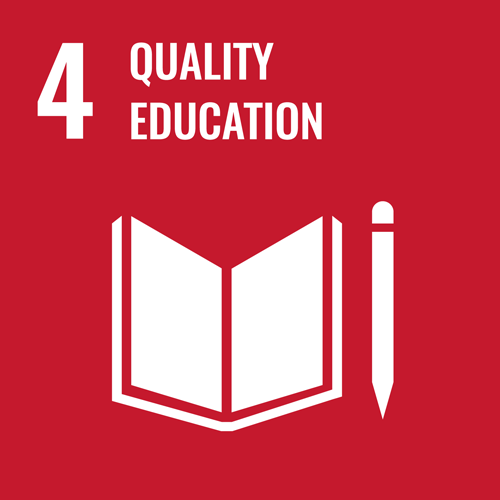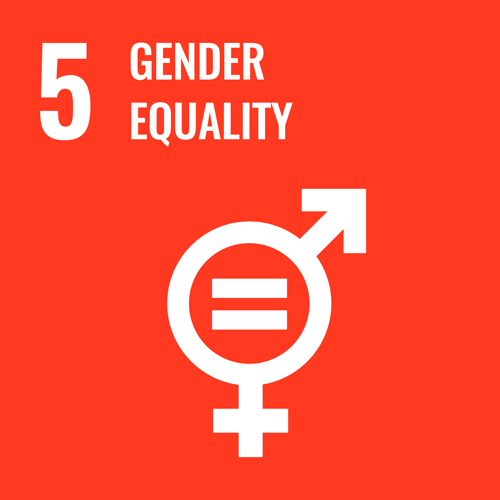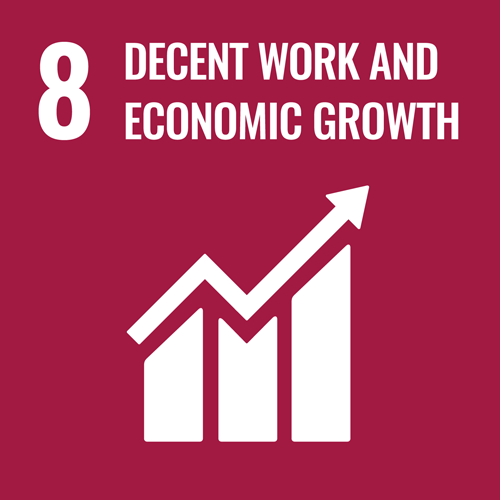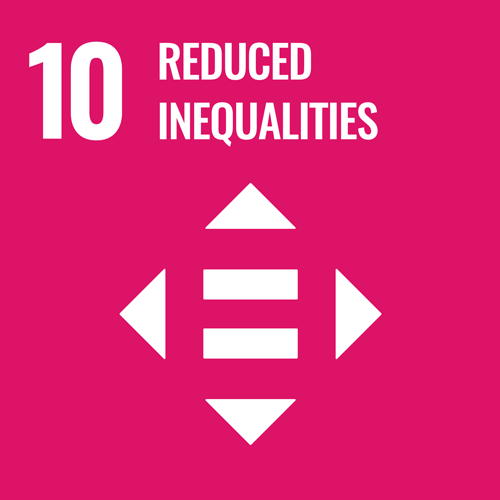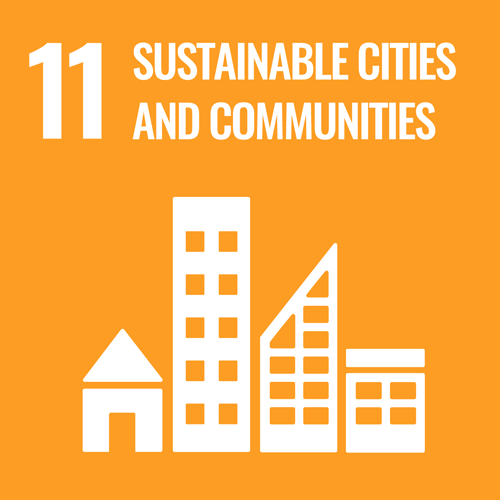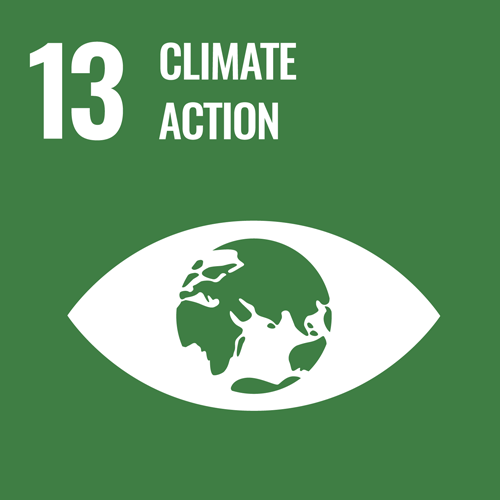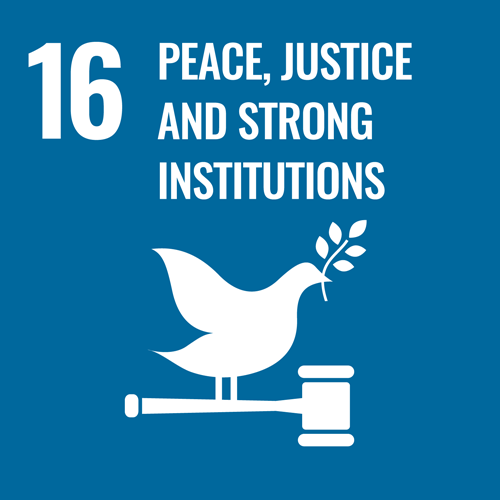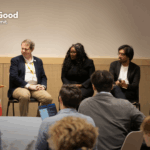
UNESCO is the United Nations Educational, Scientific and Cultural Organization. It seeks to build peace through international cooperation in Education, the Sciences and Culture. UNESCO’s programmes contribute to the achievement of the Sustainable Development Goals defined in Agenda 2030, adopted by the UN General Assembly in 2015.
Description of Activities on AI
Project 1: Defending Human Rights in an Age of Artificial Intelligence
UNESCO and UNITAR jointly launched a new microlearning course on AI and Human Rights for youths aged 16 to 24. The course breaks down complex concepts about AI through activities built around our daily technology interactions. The course focuses on how freedom of expression, right to privacy and the right to equality are impacted using AI. Users will be aware of the implications of AI for freedom of expression, right to privacy and the right to equality, through interactive exercises users will identify and engage with practical examples of uses of AI, which are problematic from a Human Rights perspective.
The course is available in English and Russian and will be available in French, Spanish and Chinese in 2021.
Project 2: AI and the Rule of Law
Based on the findings of the AI Needs Assessment Survey in Africa and another survey of over 1200 judicial operators in 100 countries, UNESCO has launched a global MOOC on AI and the Rule of Law to strengthen capacities of judicial operators in the use of AI in the administration of justice, while addressing the human rights and legal implications of the use of AI with respect to bias, discrimination, privacy, freedom of expression among others. The course is structured around six introductory modules that unpack AI’s application and impact in the judiciary.
The course is available in 7 languages and taught by 20 speakers – including sitting judges from Supreme Courts, Human Rights Courts, Legal Experts and Technology experts. The experts teaching the course come from India, Senegal, Kenya, Netherlands, United States, Chile, Brazil to China.
Over 4500 judicial operators from 138 countries have enrolled in the course in 2022.
The project continues to support capacity building for judicial operators through online and in person trainings on AI and the Rule of Law.
Project 3: AI for the Planet
UNESCO, UNEP and Startup Inside organized a global virtual conference and series of monthly dialogues that bring together the world’s best experts and AI pioneers to share concrete use cases, identify best practices, celebrate successes and inspire further actions in this dynamic field. It highlights AI innovations related to sustainable development and the preservation of the planet. Over 2,000 people worldwide from over 100 countries have joined the digital events. They highlight several developments, such as the impact of AI and machine learning to guide cities towards sustainable mobility, the impact of “green” investments and the use of AI to conserve biodiversity. Following the conference, two marquee reports will be published, in partnership with Startup Inside, UNDP, UN OICT, AI for Good Foundation, BCG and BCG GAMMA
In its second marquee report, AI for the Planet aims to highlight the top solutions and present action items for global stakeholders in its second marquee report.
Project 4: Activating Collective Intelligence for Artificial Intelligence Policies – AI Participatory Workshops and Protocols
With the Innovation for Policy Foundation (i4Policy), UNESCO facilitated community consultations and developed a report to advise governments on inclusive and multi-stakeholder-driven processes for developing AI policies. Through an iterative series of multi-stakeholder learning and co-creation workshops, i4Policy and UNESCO developed a report on Multistakeholder AI Development, including existing examples of inclusive national approaches to AI and Digital Policy Development.
In the report, UNESCO and i4Policy distill 10 essential lessons for policymakers to harness the collective intelligence of communities and ensure that the process of creating and implementing public policy is inclusive and multi-stakeholder driven.
It leverages AI and innovation community networks in developing countries to inform the development of global protocols on AI policy development process.
Project 5: UNESCO’s first graphic novel on Artificial Intelligence
In the framework of UNESCO’s work to harness emerging technology for sustainable development, this graphic novel for young adults explores the impact of Artificial Intelligence on humankind. The comic strip is designed to provide basic AI education to all, showcasing the opportunities and challenges of technology in regard to freedom of expression and human rights and ethics, along with other issues related to AI, including AI and Sustainable Development and AI Professions.
The publication goes beyond theoretical understanding of the topic and shows the everyday applications of AI, their origins, challenges and how these challenges can be addressed. Additionally, the publication will further elaborate AI in relation to the SDGs and UNESCO’s ROAM principles.
In this original work, examples will respect geographical diversity and gender distribution by showing one story based in Asia, Africa, Oceania and South America. Half of these stories feature women as the main character. The screenwriters and graphic designers are from different world regions, ensuring inclusion.
The comic strip will be published in September 2022.
Project 6: Globalpolicy.ai Portal
The platform provides policy and decision makers with data, research, use cases, and best practices in the field of AI policy and facilitates access to relevant AI-related resources from International Organizations. It serves as a platform that highlights cooperation between International Organizations and makes information readily available on one centralized portal related to AI Governance. Key partners include the Council of Europe, the European Commission, the European Union Agency for Fundamental Rights, the Inter-American Development Bank, the Organisation for Economic Co-operation and Development (OECD), the United Nations (UN), and the World Bank Group.
Project 7: Missing Links in AI Governance
The publication will provide world leaders, policy-makers, and civil society members with perspectives that will be critical to face the immense task they’re presented with: to ensure the development of AI reaches its full potential in accordance with democratic values and fundamental rights and freedoms. The magnitude of this challenge requires a collaborative effort that transcends disciplinary barriers and geographical borders. This publication brings together academics, civil society representatives, artists and innovators to help us shift the conversation from what we already know to what we have yet to render visible to ensure AI technologies leave no one behind.
Project 8: The Effects of AI on the Working Lives of Women
UNESCO, the Organisation for Economic Co-operation and Development (OECD), the Inter-American Development Bank (IADB) and Cambridge University have developed a joint report concerning AI’s effects on women’s working lives.
The report is intended to raise general awareness of the disruptions of AI during the workforce lifecycle from a gender perspective.
This descriptive publication is targeted broadly at the general public and decision-makers across sectors including public sectors, private sectors and academia, and provides policymakers with an introduction to issues regarding gender and AI, including applied use cases to consider in AI Programmes and Policy Development
It has been published in March 2022, in English, Spanish and French.
Project 9: AI and Digital Transformation Competency Framework for Civil Servants
The challenges of digital era governance require a new set of skills and competencies from civil servants, ICT ministries and digital units in government.
The UN Broadband Commission’s Working Group on AI Capacity Building, which UNESCO co-chairs with Nokia, is developing a Digital Transformation and Artificial Intelligence Competency Framework for Civil Servants. Through a series of interviews with regional policymakers, collection and assessment of good practices globally, and global consultations, the Working Group has developed evidence-based competency domains, complementary attitudes and recommendations, in a Digital Transformation and AI competency framework, for public sector duty bearers.
As an open resource, the Competency Framework is context-sensitive and adaptable for use to support capacity building for civil services across ICT Ministries and Digital Units in governments.
Project 10: The Athens Roundtable
On 1-2 Dec 2022, the fourth edition of The Athens Roundtable will be co-hosted by UNESCO to advance and widen the global dialogue on the enforcement of AI policies and regulations, coordinated efforts toward AI standards and benchmarks, and the adoption of AI in alignment with human rights and democratic values.
The Athens Roundtable is an annual multi-stakeholder conference seeking to advance the sound development of policies, educational initiatives and evidence-based instruments, to enable the trustworthy adoption of AI in legal systems, the practice of law, and related regulatory compliance.
Project 11: Second Launch for TOP 100 Solutions by IRCAI
The launch of UNESCO and International Research Centre in Artificial Intelligence (IRCAI)’s second call for Top 100 innovative solutions that leverage AI to address SDGs. Through this work, UNESCO and IRCAI aim to showcase the promising AI initiatives, that align themselves with human rights and SDGs.
Project 12: Destination A.I.
This course is made available for the public to learn about the applications of AI, issues related to confidentiality and data bias and identify the opportunities brought out by AI. This aims to strengthen the public’s basic understanding of AI and its related societal challenges.
Project 13: AI and the Futures of Learning project (based on the Teaching Artificial Intelligence at School project)
To support Member States to harness AI for education, with equity and inclusion as guiding principles, UNESCO initiated this project on effective use of AI in the future of learning underpinned by three enablers: (1) needs-driven AI-enabled futures of learning: the project will reveal emerging use cases for leveraging AI to address fundamental needs of learning and provide recommendation on planning; (2) a guidance on ethical principles: the project will develop ethical principles for the design, deployment, and applications of AI in learning and education; and (3) AI competencies: the project will develop a guiding framework on AI competencies needed by all learners to live and learn with AI.
The Project will address both the technological and the human-oriented dimensions of AI and the futures of learning across three sub-domains as identified in UNESCO’s AI and Education: Guidance for policy-makers: learning with AI, learning about AI, and learning to work and live with AI.
Project 14: Guiding the development of policies on AI and education
Based on UNESCO’s publication AI and education: guidance for policy-makers, the project provides guidance and support with the development of national policies on AI and education. The publication is made available in 7 languages and offers guidance for policy-makers on how best to leverage the opportunities and address the risks, presented by the growing connection between AI and education. It starts with the essentials of AI, provides a detailed analysis of the emerging trends and implications of AI for teaching and learning and introduces the challenges of harnessing AI to achieve SDG 4 and offers concrete actionable recommendations for policy-makers to plan policies and programmes for local contexts. The project also includes country support and the organization of the awareness raising and knowledge sharing events, such as launch events of the policy guidance or international forums on AI and education. Moreover, policy examples, promising initiatives and best practices stemming from the forum discussions are documented in the form of synthesis reports.
Project 15: Developing AI competencies for school students
Based on Teaching Artificial Intelligence at School project, the main objectives are to develop a reference framework on AI competencies to raise awareness and build capacities related to developing knowledge, skills and values needed to live and work in the AI era. The project will further facilitate the planning of national or institutional AI curricula for school education of fostering the competencies of both girls and boys. A Report on Mapping of K-12 AI curricula based on the two surveys carried out by UNESCO will inform the development of a guiding framework. Also, the project involves capacity building activities and organization of workshops with countries based on the tools and guidance developed by UNESCO. The project has been aligned with the activities of the AI and the futures of learning project.
Project 16: Flood forecasting for next 24 hours using AI
Through the project “Enhancing Climate Services for Improved Water Resources Management in Vulnerable Regions to Climate Change: Case Studies from Africa and Latin America and the Caribbean” (CliMWaR) activities have been developed on regional and national flood and drought monitoring platforms for the improvement of relevant information on climate and water for decision-making, while making the information actionable, locally relevant and timely.
The implementation of the platforms has been delivered by Princeton Climate Institute and covers the continental area of Africa, and the national-level of Cameroon, Mozambique, Zimbabwe, South Africa, Africa (at regional level) Namibia, Malawi. The platform is based on a set of ground, satellite and modelled datasets, which are combined to provide a consistent picture of hydrological conditions close to real-time, as well as forecasts out to 7-days for floods and out to 6 months for drought. The system is updated every day, about 1-2 days behind real-time and it runs a hydrological model with a 5 km resolution. The system integrates an AI-driven flood forecast at 30m resolution, indicating the expected area to be flooded in the next 24-36 hours.
Project 17: STEM education
Development of the Robotics and Artificial intelligence program to focus on designing codes, algorithms, linkage between hardware and software and 3D printing to allow teachers, trainers, and students to create machines and AI applications in MS especially in SIDS and Africa.
In Rwanda, about 120 students, teachers and UNESCO Trainers have convened in FAWE Girls School/Gisozi for STEM Mentoring Boot Camp on Robotics, Artificial Intelligence, 3D Printing and Microscience. UNESCO in partnership with Rwanda National Commission for UNESCO (CNRU), Ministry of Education, Ministry of ICT & Innovation, Rwanda Basic Education Board, Rwanda TVET Board, FAWE Rwanda and the Creativity Lab have organized the event.
Training on Artificial Intelligence Technology for University Teachers
In collaboration with Huawei Kenya, a series of training activities will be organized from 11-29th July on AI for teachers in Eastern Africa. The objective of this course is to provide the most fundamental knowledge to the University / College teachers so that they can understand what the A.I is. So, the teachers can introduce AI to their students during their course of teaching.
Dominican Republic, The 4 days workshop took place from 15 to 18 March, 2022. 57 teachers from around the country participated in the training workshop. 15 of them have participated in phase 1 workshop, dedicated to Artificial intelligence and robotics that was held Virtually in July 2021. This was the first face-to-face workshops after the pandemic period. The teachers were exposed to a number of open source softwares such as Cura, Teachable machines etc.
Project 18: Decision Making support tool using AI for school safety
Exposure of school infrastructure to multi-hazards poses significant risk to vulnerable populations of students and their education process. In response to this objective, UNESCO Chair in Disaster Risk Reduction and Resilience Engineering developed a probabilistic resilience framework, combining two methodologies which exploit Machine Learning technology, Agent-based (AB) and Bayesian Network (BN) approaches, for system performance analysis. The framework aims to estimate the disruption to education due to multiple hazards to quantify its resilience, considering physical, functional, and social vulnerability aspects of the infrastructure. The resilience of the system depends on the interdependencies of system variables from these qualitative and quantitative aspects.
Project 19: UNESO-Southern Africa sub-Regional Forum on Artificial Intelligence (AI)
The Forum aims to provide a platform for Member States, international organizations, civil society, academia, the AI industry, and other stakeholders to discuss issues and challenges related to AI development in Africa, including equity and ethics and encourage intra-African cooperation in AI.
Project 20: Implementation of the Recommendation on the Ethics of AI- innovative tools for building national capacities
To build the capacities of Member States and support them in translating the Recommendation on the Ethics of AI into policies and practices at the national level, UNESCO is working towards the development of the following tools and mechanisms as mandated by the Recommendation:
Readiness Assessment Methodology (RAM) to help governments determine how prepared the country is for developing, adopting and using AI systems, by analysing different dimensions of readiness, including legal, social, cultural, economic, scientific, educational, technological and infrastructural.
Ethical Impact Assessment (EIA) to enable countries to evaluate AI technologies based on the standards of UNESCO Recommendation, underscoring the benefits and risks of a specific system to individuals, society and the environment.
The tools should identify impacts on human rights and fundamental freedoms, in particular but not limited to the rights of vulnerable groups, poverty, digital divide, labour rights, the environment and ecosystems, and ethical and social implications.
Project 21: Ethics of AI- networks
To build the capacities of Member States and support them in translating the Recommendation on the Ethics of AI into policies and practices at the national level, UNESCO is setting up experts networks:
AI Experts Without Borders: a roster of experts to be managed by UNESCO for deployment in beneficiary countries for targeted capacity-building interventions
Women for Ethical AI Network (W4ethicalAI) to foster the implementation and deployment of the Recommendation, including the gender policy action area by engaging leading women in industry, government, science and civil society.
Project 22: Global Forum on Ethics of AI
The Global Forum on the Ethics of AI will mark an important milestone in the building of a robust international coalition towards ensuring the ethical development and use of AI worldwide. The Forum will comprise three major components:
- Ethical Development and Use of AI across the world reinforcing national regulatory frameworks and institutions.
- Global Collaboration on the Implementation of the Recommendation on the Ethics of AI: This session will feature digital ministers from across the world, including Africa, Latin America and the Caribbean, and Asia and the Pacific.
- Special Topics: parallel sessions will be dedicated to the exploration of the state of AI from different angles – Gender Equality, Environmental Protection, Readiness and Ethical Impact Assessments, Transparency and Non-discrimination.
Project 25: Landscape Study of AI Policies and Use in Southern Africa
Guided by the UNESCO Recommendation, this project includes a policy mapping of AI and relevant digital policies in 9 countries in Southern Africa (Angola, Botswana, Lesotho, Mozambique, Namibia, South Africa, Swaziland, Zambia and Zimbabwe), as well as a light-weight review of the extent of AI use across four key sectors in the 9 countries. These analyses will adopt strong human rights and ethical standpoints, And will Highlight the areas of potential ethical risks and threats on the long-term fulfillment of fundamental rights, protection of social cohesion, and promotion of justice and equality will be essential for the future of technological development.
Project 23: AI Ethics Observatory
The Observatory is an online platform that will be used to showcase UNESCO’s work on AI ethics, cutting edge research on AI ethics, identifying trends, and serving as a platform for countries to share experiences and best practices for adhering with the policy recommendations.
Project 24: Sensitizing and building capacity of the stakeholders to address ethical issues of AI
To build the capacities of stakeholders of AI technologies (developers and beneficiaries), UNESCO has organized a series of roundtables on the selected topics of ethics of AI inviting eminent experts around the world. A series of short educative and informative video of each topic of the roundtable are produced and made available through UNESCO’s youtube channel for educational purposes. This project was financially supported by the Japanese Ministry of Education, Culture, Sports, Science and Technology.


 Buy your pass
Buy your pass
